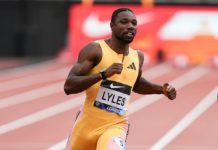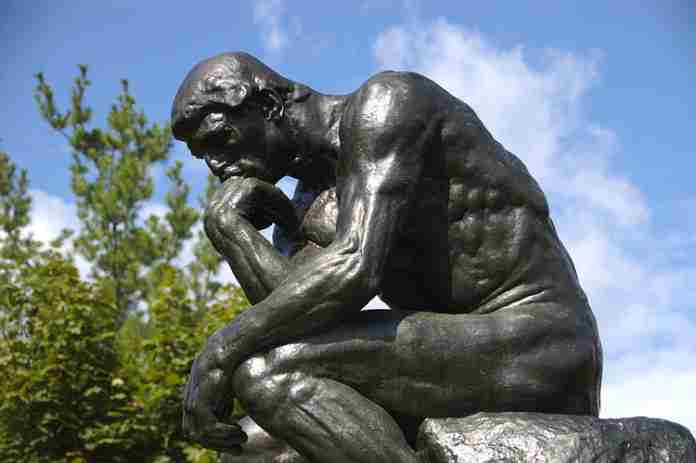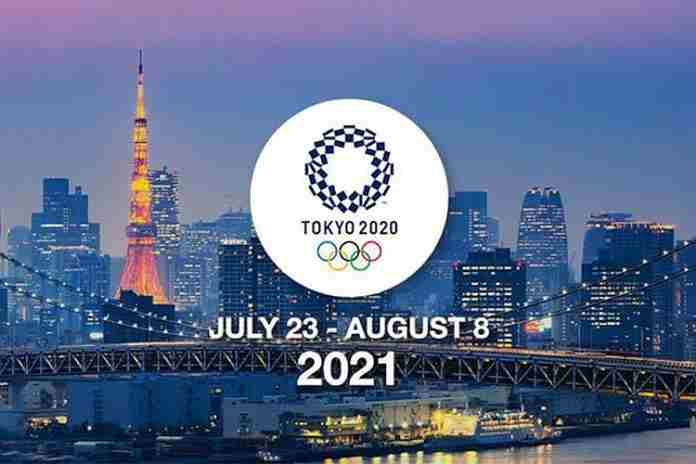(★ Friends: In such a difficult time, so gratifying to receive 29 donations toward the December bill for server and support costs; with the overage from the summer, we’re at 77% of our goal. If you would like to join in, please donate here. Your enthusiasm is the motivation for this site. ★)
/Updated: see endnote/ The power of the “athlete’s voice” and the fight against doping are two of the top stories of 2020 in the world of Olympic sport. For the most part, the two are aligned, with many athletes coming out for “clean sport,” and supporting the anti-doping work of the World Anti-Doping Agency.
But not always.
In the U.S., the Empowering Olympic, Paralympic and Amateur Athletics Act of 2020 was passed into law this year and requires that athlete representation on the U.S. Olympic & Paralympic Committee Board and committees be at least 33%. That requirement will extend to the National Governing Bodies as well.
But it does not cover professional sports in the U.S., such as Major League Baseball, the National Football League, National Basketball Association, National Hockey League and so on.
In those leagues, the athlete’s voice is 50%. Read that again: 50%. That’s because the work rules – including doping regulations – are part of collective bargaining agreements between the league (the team owners) and player’s associations for each league.
Remember: 50% voice.
So whose side are you on – athletes or anti-doping – in these recent blow-ups?
● On 25 November, the NFL slapped a two-game suspension on linebacker Luke Gifford of the NFL’s Dallas Cowboys for violating the league’s regulations on performance-enhancing drugs. Reporter Patrik Walker of CBS Sports noted:
“The shortened suspension is directly linked to the new collective bargaining agreement, and hints strongly at it being Gifford’s first offense and likely for either a masking agent or league-banned stimulant.”
A WADA spokesman called the suspension “nothing more than a slap on the wrist.” And WADA president Witold Banka (POL) said in a July interview:
“I also appreciate the involvement of the U.S. authorities in the fight against doping, it is a wonderful partner of clean sport. Let us be aware, however, that even the U.S. are facing serious problems. Let me remind you that the major professional leagues such as the NFL, NHL or NBA are not Signatories to the World Anti-Doping Code. The same applies to the academic sports (NCAA). I believe that this is a loss not only for clean sport, but also for the U.S. athletes themselves who should have the right to demonstrate their integrity and be protected.”
● The same issue was raised again in light of the reduction of WADA-imposed sanctions on Russia announced by the Court of Arbitration for Sport (CAS) on 17 December.
The moralists were out in force. U.S. Anti-Doping Agency chief Travis Tygart ripped the decision, including:
“[T]here is no consolation in this weak, watered-down outcome. To once again escape a meaningful consequence proportional to the crimes, much less a real ban, is a catastrophic blow to clean athletes, the integrity of sport, and the rule of law.”
Followed up on Twitter by Matt Lawton of The Times (GBR):
“Powerful statement by @usantidoping’s Travis Tygart condemning decision on Russia by CAS. ‘A weak, watered-down outcome.’ He doesn’t think the ban has been upheld. Far from it.”
But then this reply from former International Olympic Committee marketing chief Michael Payne (GBR):
“Look forward to the same strong statements from @USAantidoping on sanctions on US leagues (which make a mockery of how serious US is on the fight against doping.)”
And from Alain Lunzenfichter, the former editor of the highly-respected French all-sports daily, L’Equipe (English via Google Translate)
“USADA boss Travis Tygart brings his science back to every decision of the CAS, [International Olympic Committee], or WADA. But in order to criticize you must first be irreproachable. Let him seriously control the professional leagues, then he can say that the other entities are lax.”
Hey guys, what about the athlete’s voice? In the U.S. professional leagues, it’s 50%, remember?
WADA has been widely criticized for not having enough athlete voices, so it can be tougher on cheaters:
● On its 12-member Executive Committee: currently just Danka Bartekova (SVK), the Vice President of the IOC Athletes’ Commission, although Banka and WADA Vice President Yang Yang (CHN) are both former world-class athletes (1 of 12 is 8%; 3 of 12 is 25%).
● On the 38-member Foundation Board: just four designated IOC Athletes’ Commission reps, although there are eight other former international-class athletes in other positions (4 of 38 is 11%; 12 of 38 is 32%).
WADA is going through a reform process now to add more athlete representation, but there are many calls of “too little, too late.”
But what if there were 50% “athletes” – current and former – on these bodies? Would the result be a stronger anti-doping regimen, or the “lax standard” reached in collective bargaining in American pro sports?
Let’s remember that real money is at stake in the U.S. pro leagues, not the relative pennies available in traditional, Olympic-focused sports (excepting football, of course). On 18 November, New York Mets star Robinson Cano was sanctioned for an entire, 162-game season thanks to a second positive drug test – previously in 2018 – and forfeited his $24 million salary for 2021.
Note this: that $24 million is more than the annual revenue for 17 of the 28 IFs in 2018 or 2019! And that was for a one-year ban, not the eight years that the current WADA Code demands for a second positive (as was imposed on Chinese swimmer Yang Sun, now to be re-heard at the Court of Arbitration for Sport).
Would a much heavier athlete voice within WADA lead to more dramatic consequences than the CAS’s modest, two-year sanctions on Russia? Or will the “athlete voices” be blended into a union-style collective voice that will insist on more modest penalties?
This is about money. The more money is involved, the shorter the penalties, and in the U.S. pro sports, even those shorter penalties cost much more than most Olympic-focused-sport athletes earn in an entire year.
(How did we get four-year penalties for doping in Olympic sports? So that the doper would not be eligible for the next Olympics! Because in the Olympic world, nothing else matters. That’s the saddest reality of all.)
For all of the wringing of hands and tearing of hair over Gifford’s two-week suspension, he will lose about $79,412 of his $675,000 salary for 2020. How many Olympic-focused-sport athletes earn $79,412 a year? And who is getting hurt more?
In theory, having more athlete representation at the World Anti-Doping Agency and elsewhere is a fine thing. But the world-sport moralists might also want to recognize what happens when athletes have a real, 50/50 say on earnings and working conditions.
The true price that almost all Olympic-focused-sport athletes pay – except for football – is trading money for the possibility of Olympic glory.
Rich Perelman
Editor
/Endnote: Reader Mike Harrigan noted that Robinson Cano plays for the New York Mets, not the Seattle Mariners, as inadvertently originally posted. Cano was traded from Seattle to New York in 2019. Thanks, Mike!/
You can receive our exclusive TSX Report by e-mail by clicking here. You can also refer a friend by clicking here, and can donate here to keep this site going.
For our 526-event International Sports Calendar from October 2020 to June 2021, by date and by sport, click here!




























